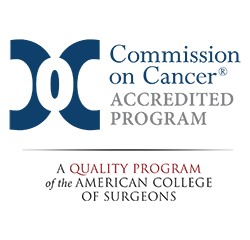Symptoms & Diagnosis
Symptoms of early pancreatic cancer can be subtle or nonexistent. Over time, pancreatic cancer can feel like or lead to:
- Dark urine
- Decreased appetite or feelings of fullness
- Jaundice (yellow cast to skin and eyes)
- Nausea and vomiting
- Pain in the upper part of the belly or middle of the back
- Pale stools, stools that float in the toilet or, in some cases, diarrhea
- Unexplained weight loss
- Weakness or feeling very tired, dizzy and chilled
You know your body best. If you think you are feeling any pancreatic cancer symptoms, reach out to your doctor right away so we can learn more about what might be causing them.
We conduct a thorough health history, physical exam and a series of tests to check for pancreatic cancer. These tests can help diagnose and stage cancer so your care team can find the best course of treatment tailored to your condition. These tests include:
- CT scan. This detailed X-ray produces a computerized image that can reveal a pancreatic tumor.
- Transabdominal ultrasound. This imaging test uses a handheld ultrasound device over your abdomen that may show a tumor or blocked ducts in the pancreas.
- Endoscopic ultrasound test (EUS). During this test, we insert a tube with an ultrasound probe through your mouth and thread it to the small intestine. This test can reveal a pancreatic tumor and if it is impacting any blood vessel.
- Endoscopic retrograde cholangiopancreatography (ERCP). This technique combines an endoscopy and X-ray to scan the inside of your stomach and upper small intestine.
- MRI. This test uses a magnetic field and radio waves to create images of your internal organs.
- Positron emission tomography (PET) scan. This imaging technique helps show how your tissues and organs are functioning with a 3D image of your organs.
If the results of these exams are abnormal, we refer you for a cancer consultation with an oncologist who has experience treating pancreatic cancer. This expert reviews your test results and medical history to learn more about your diagnosis and form a treatment plan personalized for your needs.
We know learning you have pancreatic cancer can feel scary. That’s why we are committed to seeing you for a cancer consultation as quickly as possible — often within 48 hours — after your diagnosis so we can discuss treatment options, order additional tests and address any questions without delay.
Treatments
You deserve a personalized care plan tailored to your needs and condition. Each week, the Cancer Care team convenes a tumor board that brings together experts from across disciplines to collaborate on customized care plans for you. This collaboration has one common goal — to make sure you get the best possible care. We also offer the most advanced treatment options for pancreatic cancer and follow the National Comprehensive Cancer Network guidelines, the highest standard in cancer care.
Surgery
Chemotherapy
Chemotherapy may be used to treat pancreatic cancer, including as part of a first-line treatment. We collaborate with you on the right combination of anticancer drugs (intravenous, or IV, drugs and pills), anti-nausea medicine and pain medication for your needs. El Camino Health is also at the forefront of hospitals using targeted therapy, an approach that finds a unique combination of drugs to combat your pancreatic cancer tumor. We analyze your tumor to learn about its protein and chemical makeup, then use the latest research to find which drugs will have the greatest impact fighting it.
Radiation
In some cases, your care team may recommend radiation therapy alongside surgery and chemotherapy to treat your pancreatic cancer. Radiation oncologists at our Radiation Treatment Center have treated thousands of patients with many types of cancer.. Our team of experts uses state-of-the-art radiation treatments, including stereotactic radiosurgery, adaptive radiation therapy and intensity-modulated radiation therapy, that bring a high level of precision and the ability to protect healthy tissue.
Gastrointestinal (GI) Stents
Your pancreatic cancer tumor may block your bile duct. To relieve pain and other symptoms from this blockage, we place a small drainage tube called a GI stent to allow bile to flow across the blockage to your small intestine. We use an endoscopic approach, meaning we place the stent using a scope that travels down your throat to the area around the blocked duct.
Clinical Trials
We are always seeking the next opportunity to improve detection, ease treatment and find better cures for your pancreatic cancer. That’s why we collaborate with other medical centers and the National Cancer Institute on pancreatic cancer clinical trials ranging from innovative immunotherapy to ways to optimize chemotherapy and more.
If you’re interested in participating in this leading-edge research, talk to your care team to find a study that’s right for you.
Cancer Awards & Accreditations
Our superior Cancer Care has earned us a three-year accreditation as a comprehensive community cancer program from the Commission on Cancer of the American College of Surgeons (ACS). Accreditation ensures that the care you receive right here in your community is high-quality and uses evidence-based, national treatment guidelines.
We’re also an ACS Surgical Quality Partner and committed to the highest surgery standards.
Patients rate us highly, too. Based on PressGaney patient satisfaction surveys, our “likeliness to recommend” score is over 90%, and we’ve won the top patient experience award multiple years in a row.
 |  |
Cancer Patient Stories
You are our inspiration. Hear how El Camino Health Cancer Care has helped other patients beat cancer — and how we can support you at every step of the way.
